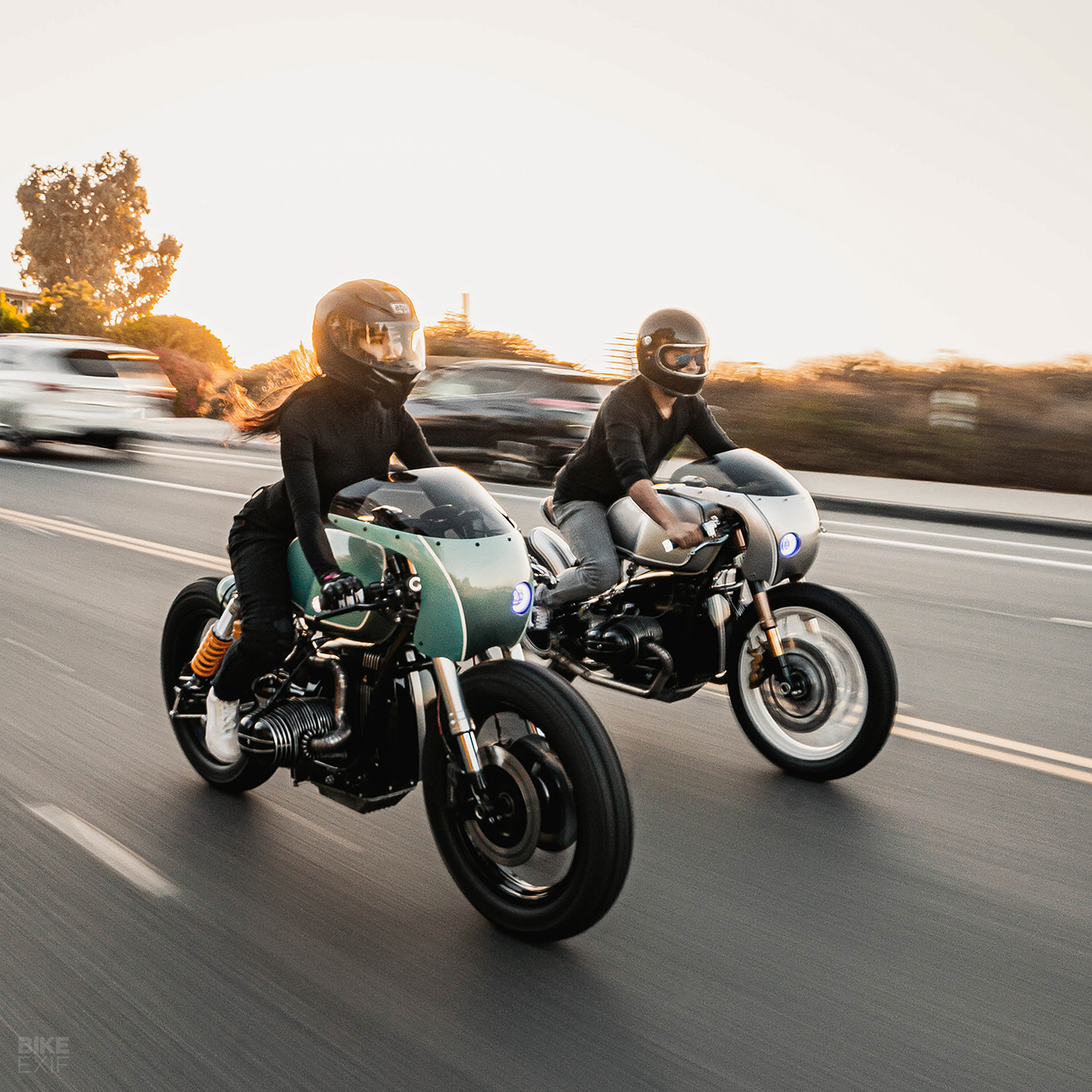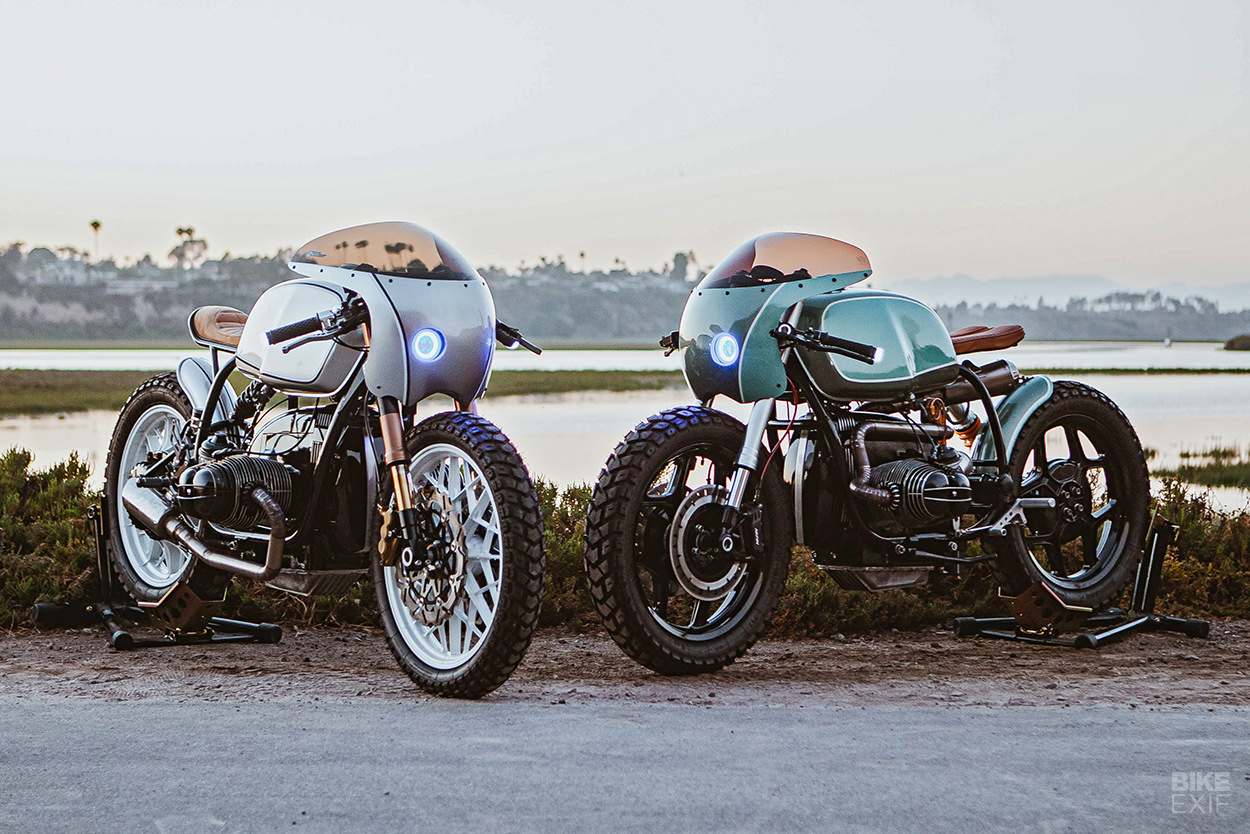
If you want to earn a living in the custom business, scale is everything. Reinventing the wheel with every build will be expensive, unless you have a rock solid client base or a wealthy collector on speed dial.
Most savvy builders replicate the parts they use for one-off customs, but Johnny Nguyen of Upcycle Motor Garage has taken the concept a step further: he’s built two BMW R100s at the same time, creating a pair of sister bikes that are equally gorgeous in slightly different ways.
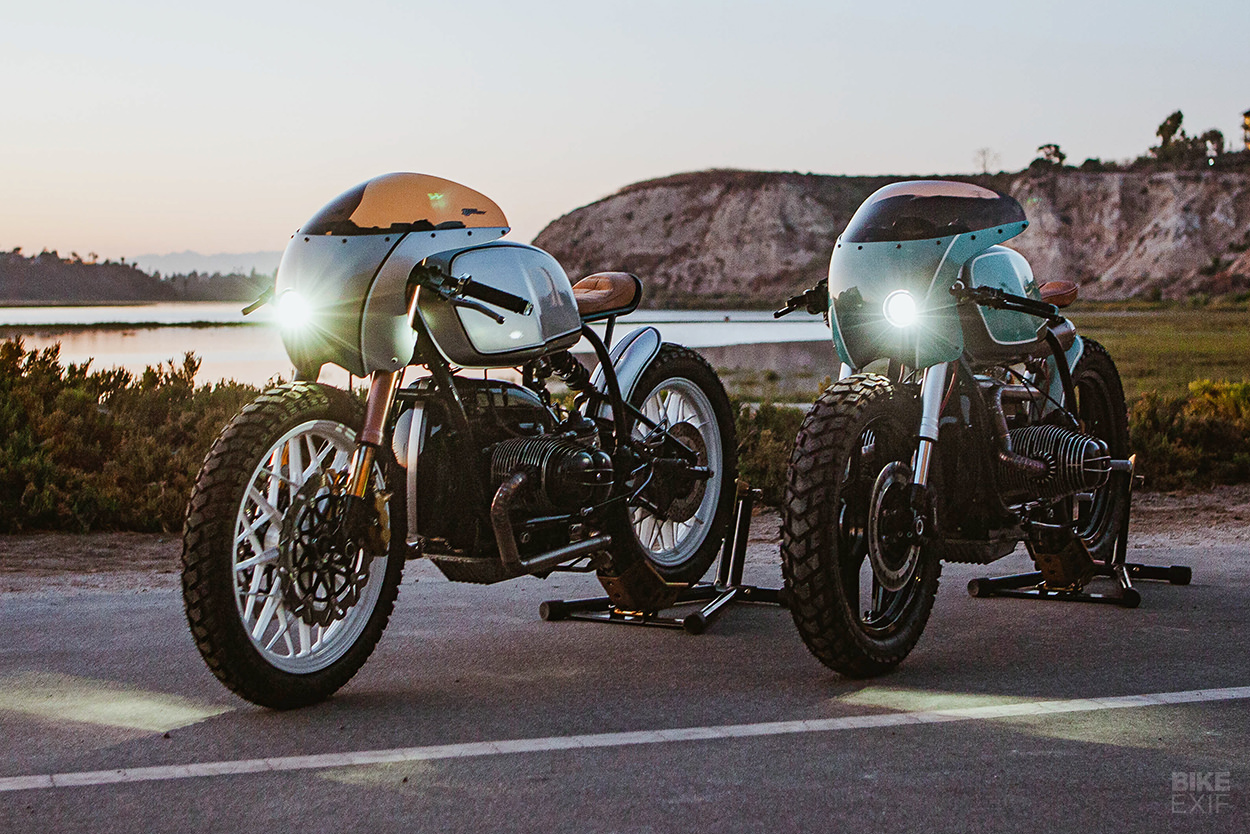
Johnny runs his one-man shop out of a small garage in Anaheim, California. “I’ve been building bikes for the last three years,” says owner Johnny Nguyen, “but I’ve worked on cars since I was 12—over 25 years now.”
Johnny always had a dream to build a R100, cafe racer style. “There was a great opportunity to own two, so I decided to build them together,” he tells us. “It became my mission to make them ‘look the same, but different’.”
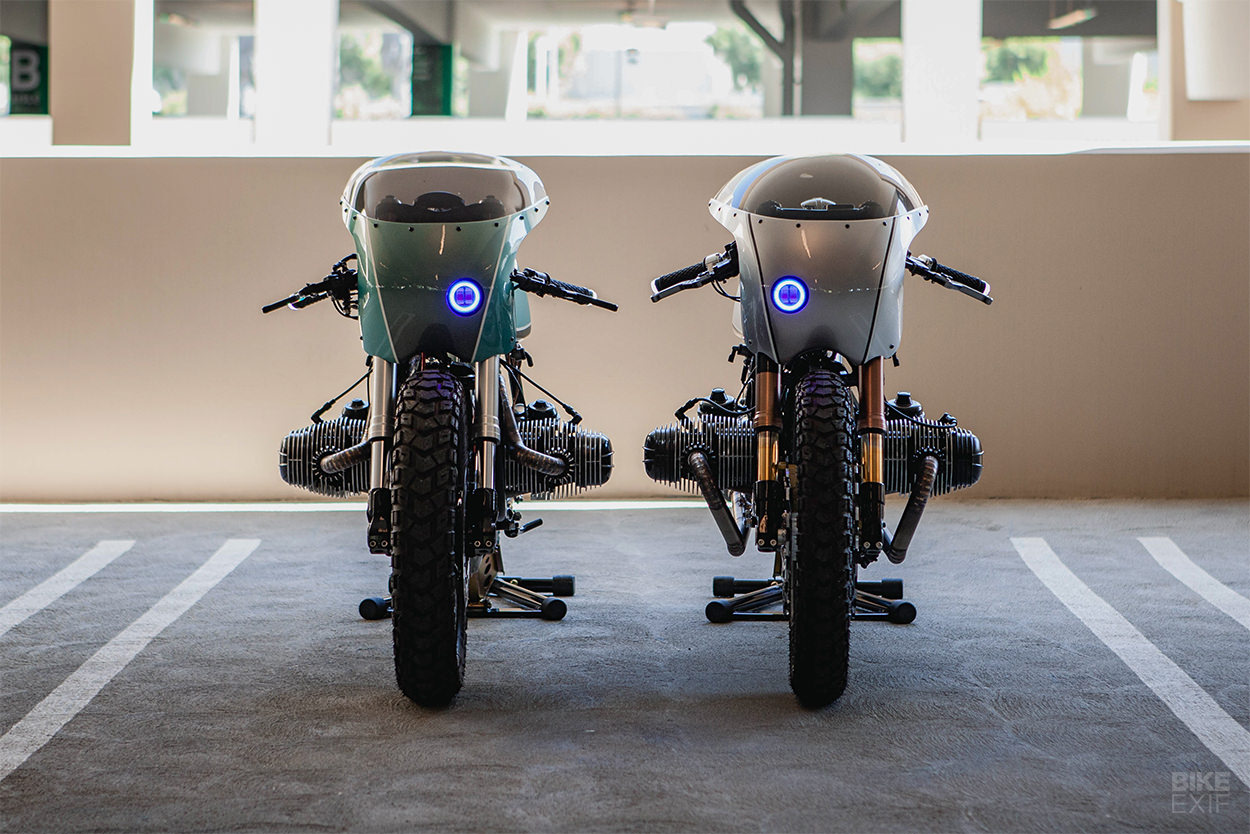
The bike with the stunning sea foam green paint is a 1988 R100RT, and the bike finished in classic silver and smokey brown is a 1982 R100RS, BMW’s first faired sportbike.
The engine is essentially the same in both—the famous Boxer twin, with a 980 cc capacity, 70 stout German horses on tap, and a five-speed ‘box.
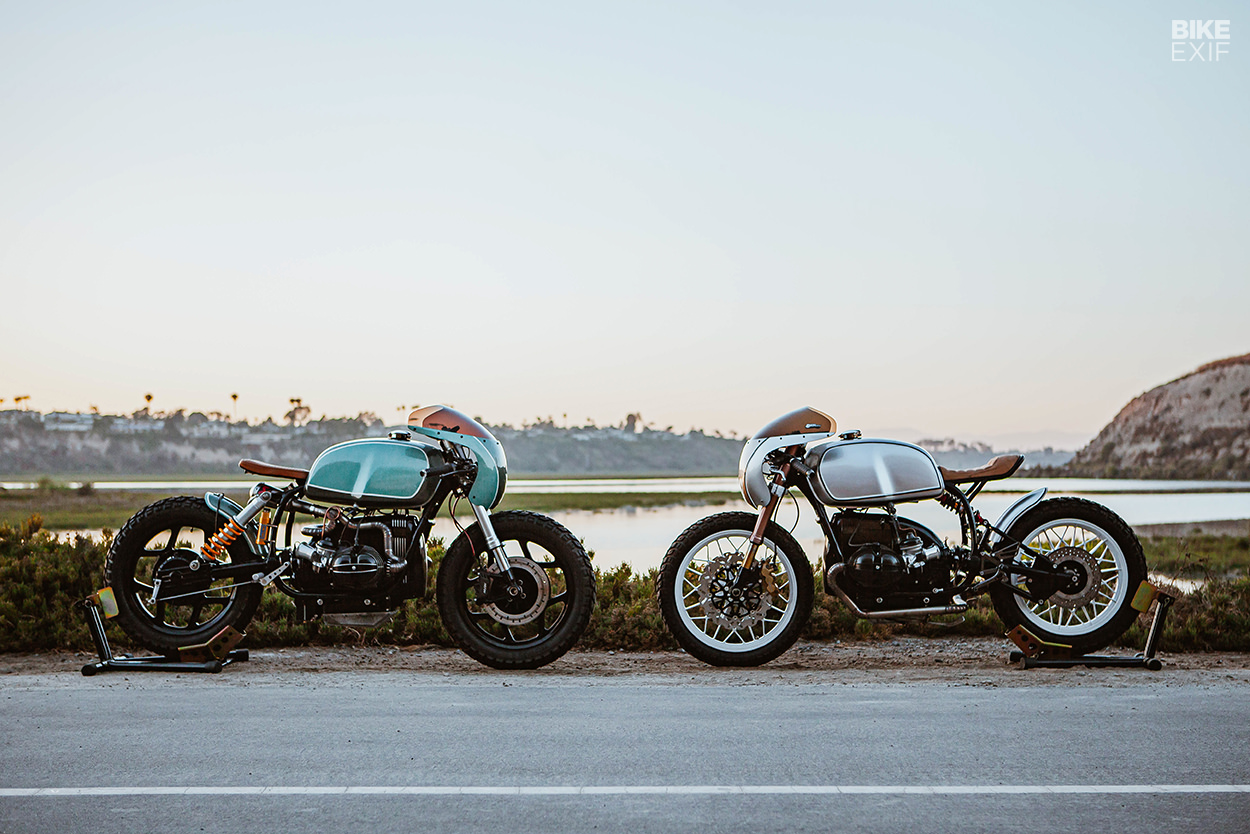
A whole set of mods are common to both bikes. The engines are sporting vintage-style valve covers and velocity stacks, and breathe out via pie-cut stainless steel exhaust systems.
On the silver RS, the 2-into-1 exhaust exits low on the right; on the green RT, the pipes converge into an Akrapovič slip-on muffler under the seat.
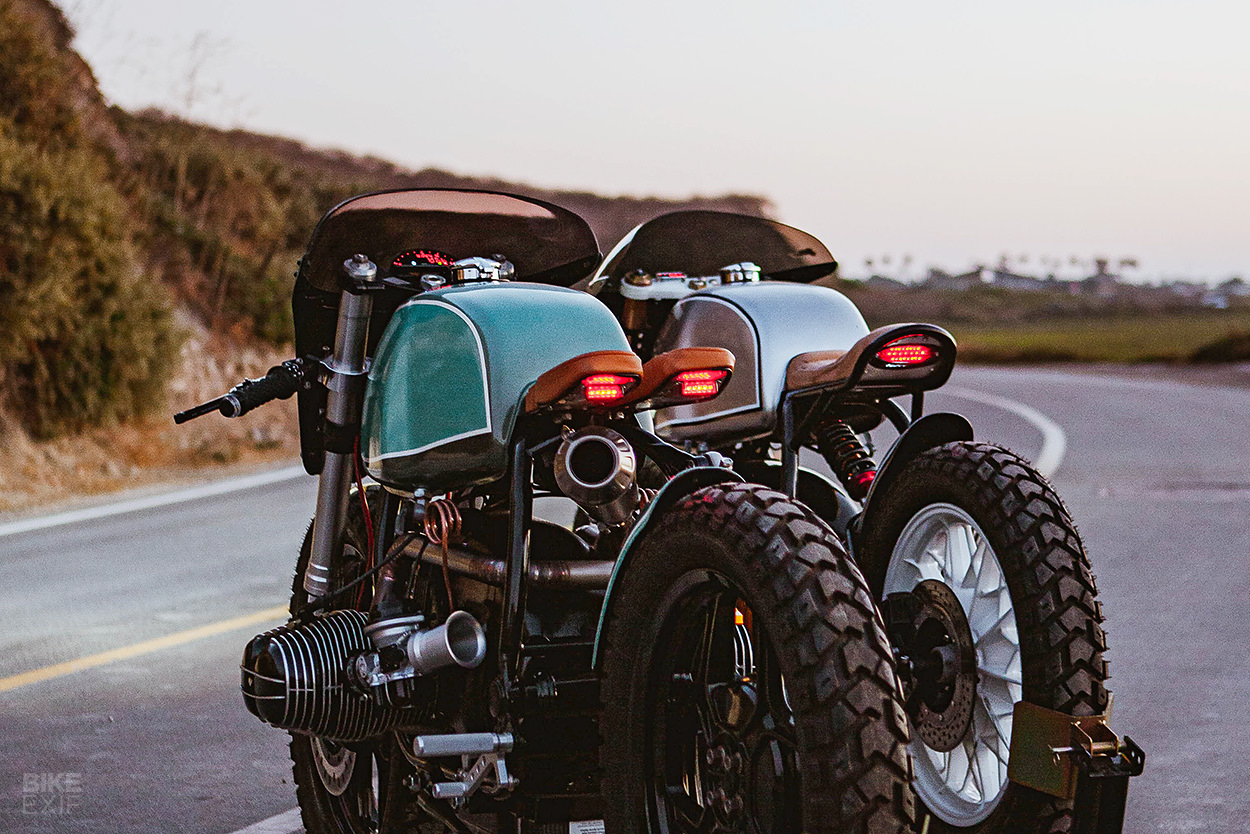
The aesthetics of the Boxer engines have been cleaned up with sleek new aluminum engine covers from Bayer, with the airboxes deleted.
Things start to diverge on the suspension front, though. The early 80s R100RS arrived with a conventional twin-shock setup at the back, but the later R100RT had a Monolever system.
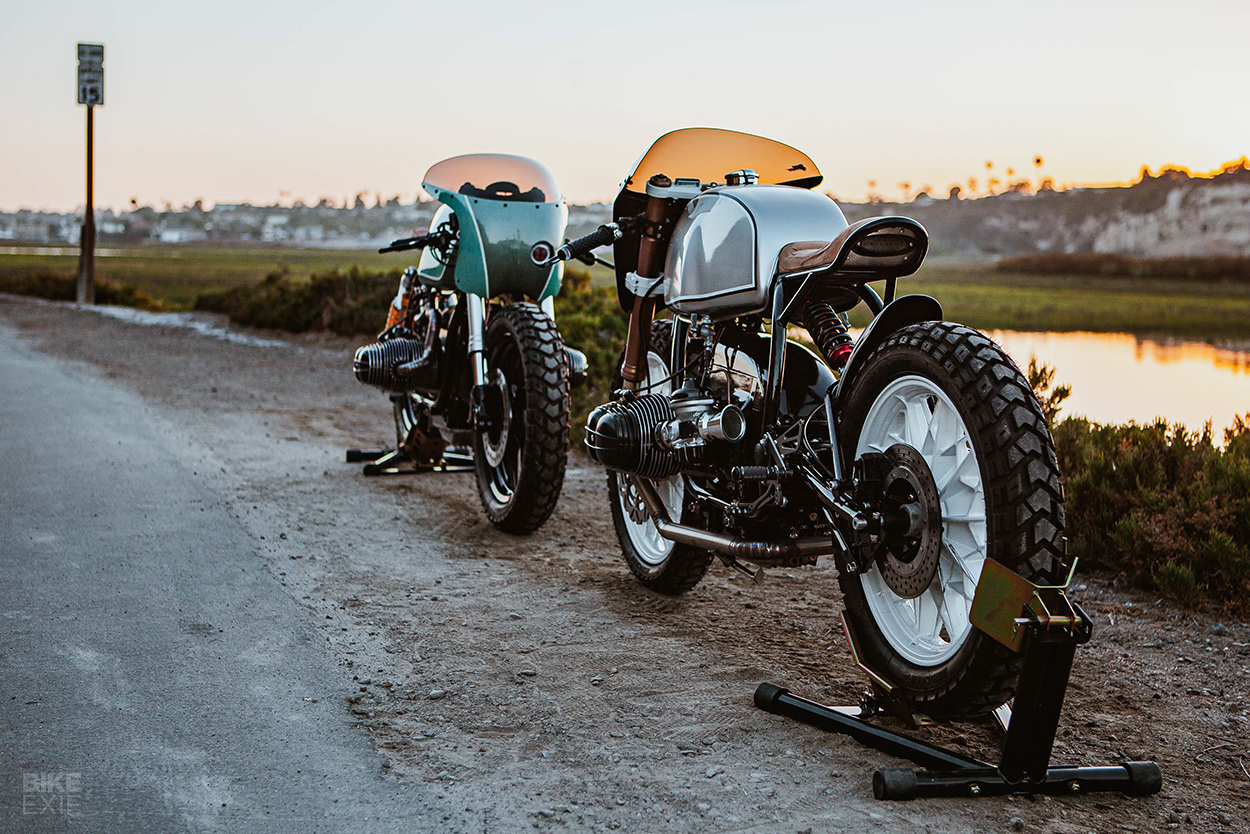
Johnny built new subframes for both bikes. He installed a new Öhlins shock on the RT, and converted the RS from twin shock to monoshock, positioning a new shock centrally under the seat and mounting it to a brace that connects the original swingarm mounts.
At the pointy end, both BMWs get very sporting forks; the original clamps that came with the forks have been shaved and cleaned up by Johnny, adapted to the BMW frames, and machined to accept speedo mounts.
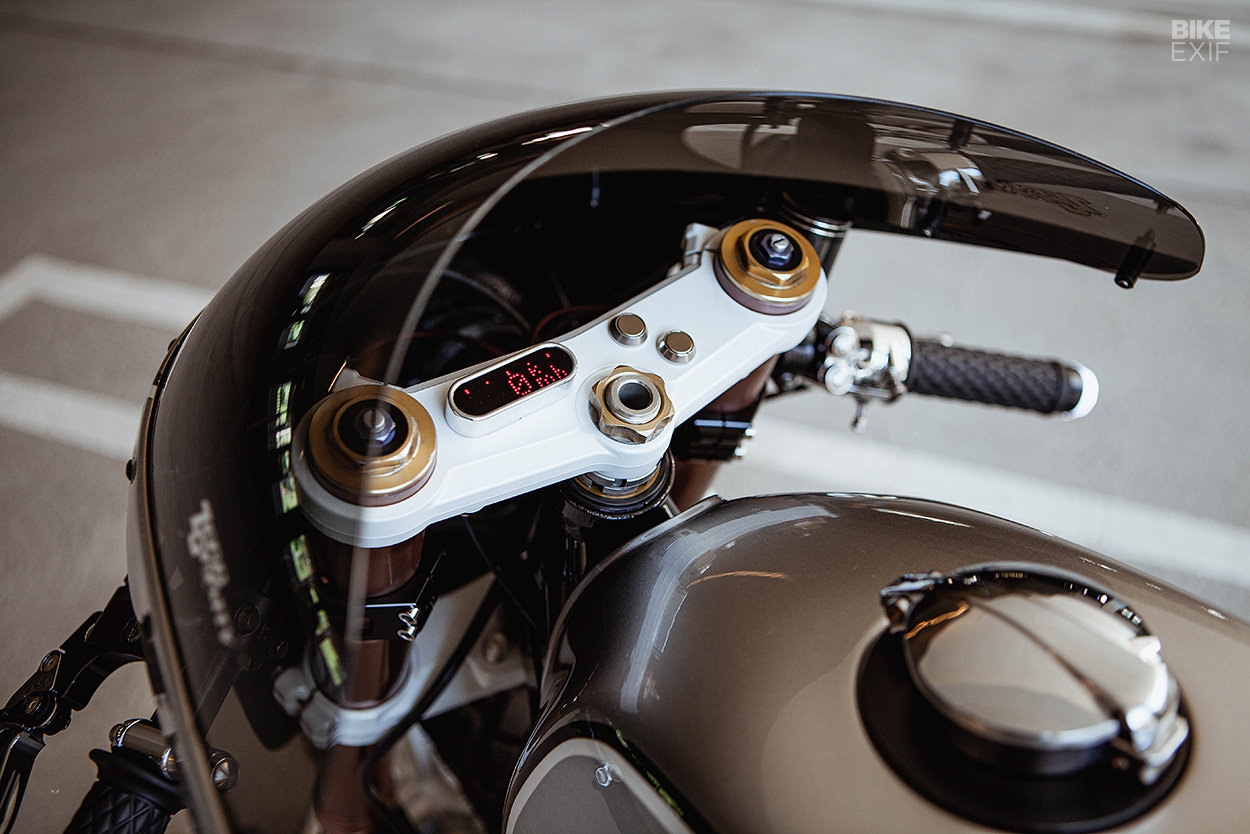
The green RT gets its forks from a Kawasaki ZX-6R, along with the Ninja’s front wheel and brake rotors. The silver-and-brown RS enjoys Suzuki GSX-R1000 suspenders, but they’re matched to ZX-12R rotors: “The only ones I could find with a similar bolt pattern and 320mm disc,” says Johnny.
Both R100s are topped off with R90S cafe ‘quarter fairings’ from AirTech Streamlining. Johnny trimmed and adjusted them to his liking, and added a headlight bucket to each fairing using PVC and fiberglass.
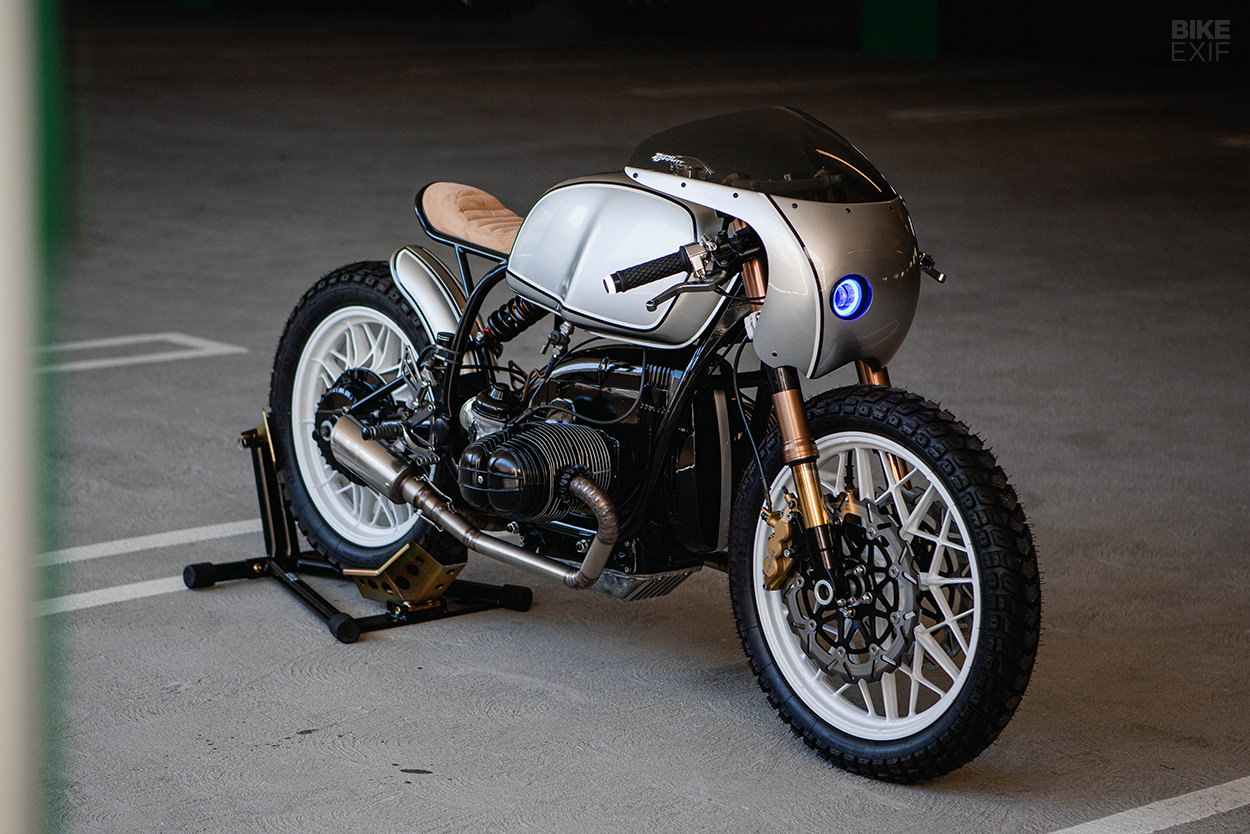
The electrics are now controlled by a Motogadget m.unit blue, with rider information coming from different sized Motoscope speedos. The switchgear is a mix of Motogadget and Motone components.
Despite being a one-man band, Johnny handled every aspect of the build on both of these bikes, apart from powdercoating and upholstery. He specified a suede seat for the silver RS, but the green RT gets its leather from a BMW car.
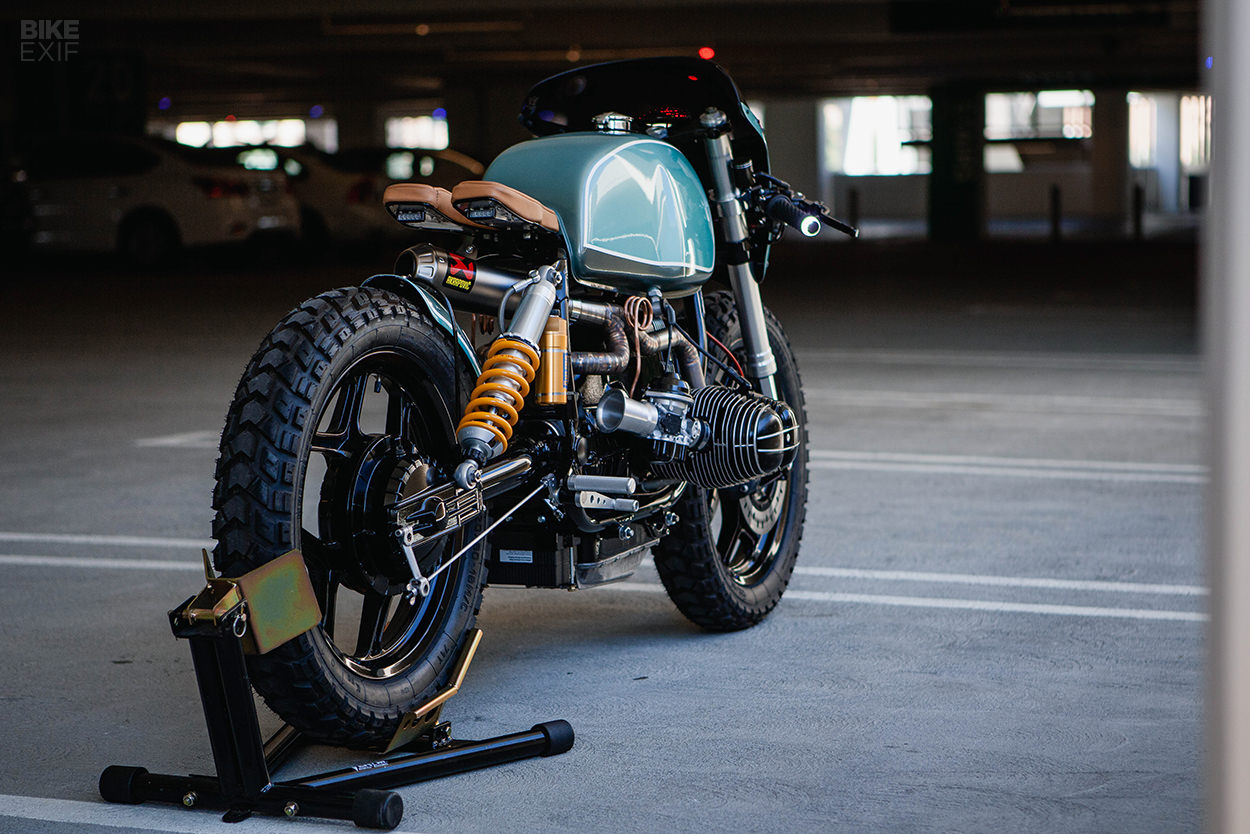
We’d be happy with either one of these bikes in the EXIF garage: Johnny has done a solid job on the mechanicals, the essential BMW boxer character is still there, and the new paint shimmers beautifully.
If you had to choose one for a warm evening ride along the Orange County coastline, which one would you pick?
Facebook | Instagram | Images by Ryan D. Cheng
